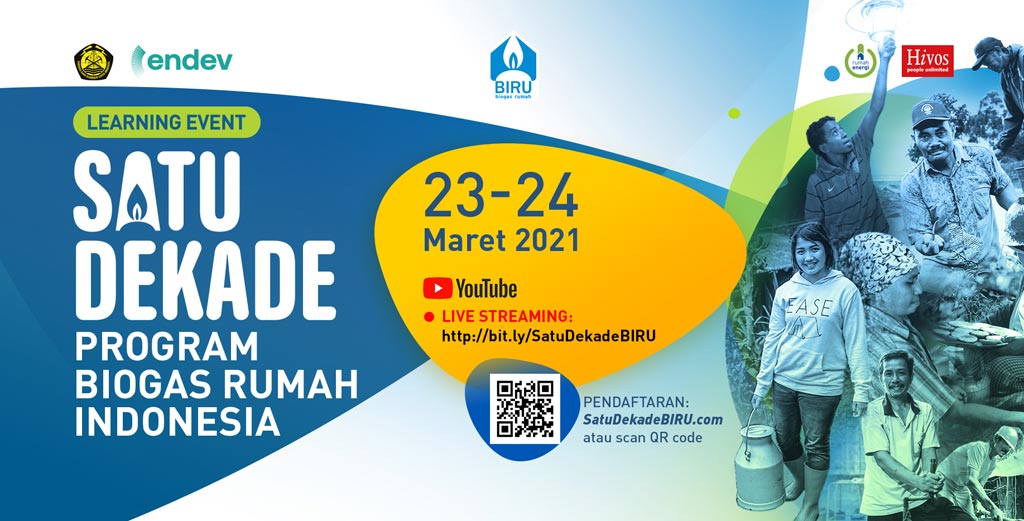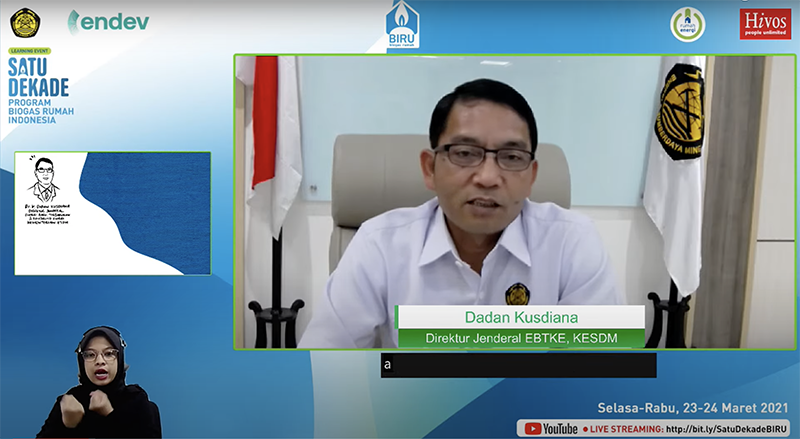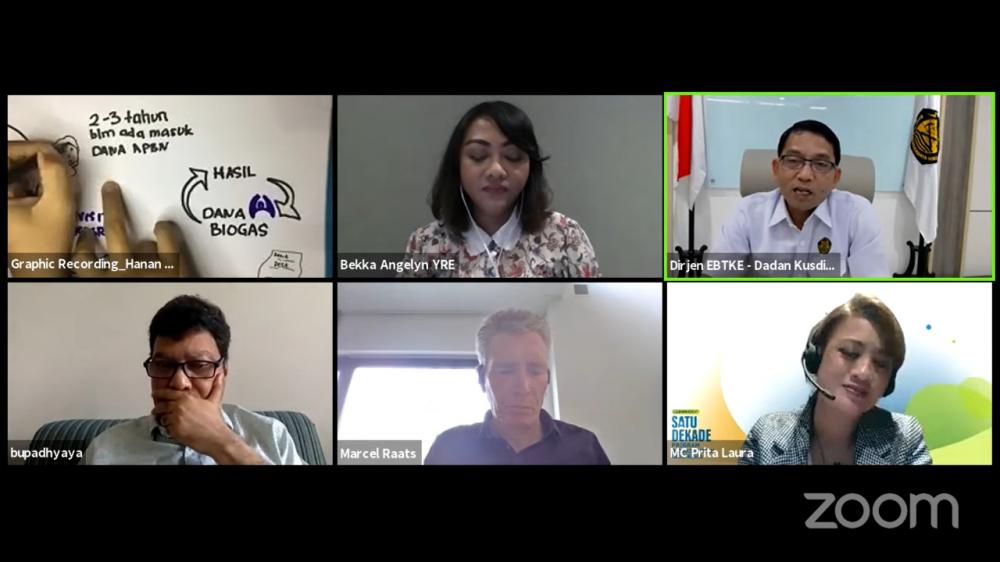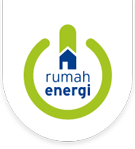A Decade Long Impact towards 1 Million Domestic Biogas

Government of Indonesia c.q. The Ministry of Energy and Mineral Resources (MEMR) together with the Government of the Netherlands c.q. Hivos has launched the Indonesia Domestic Biogas Program (IDBP) or known as the BIRU program is a multi-stakeholder program that aims to contribute to economic prosperity and poverty reduction in Indonesia by providing access to clean and affordable energy through biogas development.
To commemorate a decade of the presence of the BIRU program in Indonesia, the MEMR is holding a virtual learning event entitled “A Decade of Indonesia’s BIRU Program”. The development of domestic biogas is one of the bioenergy development programs that contribute to the achievement of a 23% renewable energy supply by 2025. Until 2021, the BIRU program has facilitated the construction of 25,157 biodigester units and has mobilized funding of more than Rp 200 billion.

“We express our appreciation to Hivos and Yayasan Rumah Energi for their contribution of thought and contribution in supporting the small-scale energy sector development program as the implementing partner for the Indonesia domestic biogas program (BIRU) in various parts of Indonesia,” said Director General of New, Renewable Energy and Energy Conservation (DG NREEC), Dadan. Kusdiana, representing the Minister of Energy and Mineral Resources, opened the event, Tuesday (23/3).
The BIRU program has contributed to more than 50 per cent of installed biodigester units in Indonesia. In total, until 2021 there are 47,998 biodigester units installed nationwide. It is hoped that through this learning the community can learn from the success stories, knowledge and lessons of the BIRU Program and use this momentum to accelerate the achievement of the target of 1,000,000 market-based biodigester units.
A decade after its launch in 2009, the BIRU program has reached more than 119,000 beneficiaries. Not only that, additional income and savings in expenses were also enjoyed from the reduction in purchases of 3 kilograms of LPG, purchases of chemical fertilizers and income from the bio-slurry (natural fertilizer) business. This approach applies a circular economy concept that connects the use of organic waste, access to renewable energy and food security.
On this occasion, Hivos Southeast Asia Regional Director, Biranchi Upadhyaya revealed that in the midst of the Covid-19 pandemic difficulties, biogas perpetrators and users have the greatest resilience. “Biogas is able to independently create lighting and free cooking energy as well as providing local food sources for families and income from agricultural products through the use of fertilizers from biogas waste to support sustainable agriculture,” said Biranchi.

In terms of the job opening, the BIRU Program has built the capacity of 1,444 trained Construction Partner Organizations (CPO). With the motto “Processing Waste into Blessings”, the BIRU program has applied the principles of a Circular Economy which emphasizes (design) waste management, maintains economic value as long as possible, and maximizes what can be renewable. Thus, the biogas sector is predicted to contribute to reducing waste and carbon emissions, providing small-scale clean energy, and creating (green) jobs for Small and Medium Enterprises (SMEs).
A blended finance scheme is implemented with the aim of reducing investment costs for biogas users. from cooperatives or credit unions, APBN, APBD, corporate CSR, and carbon credit, this scheme is expected to be able. Currently, the BIRU Program has partnered with 34 cooperatives and Credit Unions (CU) that have distributed biogas financing to communities at the site level. Until the end of 2019, the BIRU Program has cumulatively reduced emissions by 370,000 tons of CO2e.
At the end of March 2021, there will be a complete handover of the BIRU Program from Hivos to YRE so that full responsibility for program management will be carried out by YRE. Coordination of the implementation of the BIRU Program is still carried out with the DG NREEC related to the BIRU Program work plan, synchronizing data on the achievement of biogas development with other ministries/institutions that are targets in the 2020-2024 RPJMN, preparation of the Biogas Roadmap and discussions on program continuation, one of which is related to financing through the Allocation Fund. Especially for the implementation of the BIRU Program.
“In celebrating a decade of implementation of the BIRU Program, we and our stakeholders are committed to increasing agility and innovating both in terms of technical and business models. In 2021, we are testing 2 new biogas variants and applying a remote sensor to monitor the performance of BIRU biogas. In the future, we hope that more cooperatives, banking institutions and fintech can collaborate under the BIRU Program, “said Rebekka S. Angelyn as Executive Director of Yayasan Rumah Energi.
The government, in this case, the MEMR, will continue to support the development of biogas for the household sector, because this program encourages access to affordable clean energy, reduces household spending on fuel purchases, is in line with gender mainstreaming and becomes a driver of socio-economic activities, because of the byproduct of biogas. , can be used as organic fertilizer to increase agricultural yields as well as opportunities for small and medium enterprises.
Integrating the biogas development program with other productive sectors is an effective and efficient way to improve the people’s economy, especially during this pandemic. The dominant community involvement in this program can be in line with the National Economic Recovery Policy Strategy after the Covid-19 pandemic.
For the event recap, visit SatuDekadeBIRU.com or our Youtube channel here

